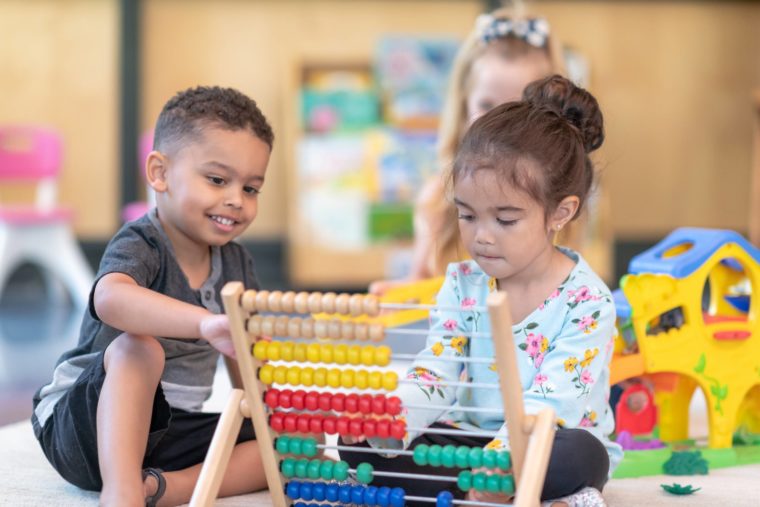Cognitive flexibility activities are an essential part of a child’s development and education.
Cognitive flexibility is the ability to see situations from different perspectives. Essentially, being able to “walk in another person’s shoes.” Cognitive flexibility is key to helping humans empathize and problem solve, but is normally thought of as a trait possessed by adults, not kids.
However, studies show that the ideal time to introduce activities focused on cognitive flexibility is actually between 3 and 4 years of age. In 2010, a University of Toronto study showed that most 4-year-olds are capable of applying mental processes associated with cognitive flexibility.
Cognitive flexibility activities will help your child develop properly and be better prepared for adult life. Here are six activities to try!
Cognitive flexibility activities
1. Card games
Matching numbers and suits with playing cards is an easy to way to promote cognitive flexibility. These games also improve attention span, inhibition, and rapid response. Here is a Kinedu activity to foster your child’s awareness, mindfulness and cognitive flexibility:
2. Guessing games and riddles
Riddles involve two key skills: working memory and flexible thinking. During guessing games or with riddles, your child takes into account previous answers, discard potential theories, and find answers.
3. Games associated with songs and music
Singing in rounds, clapping along, and singing in general are great way to strengthen cognitive flexibility. They are easy to incorporate into your day-to-day life and can help stimulate memory and concentration, too!
4. Solo activities
Although doing activities together can strengthen your bond, sometimes kids do well practicing cognitive activities on their own.
Here are a few ways to practice cognitive flexibility alone:
- Riddle books
- Puzzles
- Matching games
- Chess
- Rubik’s Cube
Download Kinedu FREE and start boosting your baby’s development with 1,800+ activities!
5. Memory games
Executive functioning goes hand-in-hand with cognitive flexibility, and a key part of executive functioning is memory. Help your child build memory with card games, object-finding challenges, or by repeating strings of words or things.
6. Physical activities
Physical activities play a key role in the development of cognitive flexibility. Here are a few to try:
Musical chairs
Not just for family gatherings and BBQs! Musical chairs is a great way to build cognitive flexibility. The game consists of having participants dance or walk around a circle of chairs. The trick? There should be one fewer chairs than number of people. Play music while participants circle the chairs. Once the music stops, whomever doesn’t find a chair is out. Continue the game, removing one chair at a time.
Musical chairs improves automaticity and builds attention span.
“Ghost” dodgeball
A popular PE activity, Ghost helps improve stamina, coordination, and speed. It is also a game that helps children to think fast, control themselves, follow rules, and always be attentive and focused.
The rules of the game are simple. Two teams are formed and the players must throw a ball towards their opponents. If the opponent catches the ball, the ball becomes theirs, and the thrower goes to the opponents side and becomes a “ghost.”
Organized and team sports
No need to get fancy–any sport will do! Basketball, soccer, and frisbee all involve aerobic exercise, coordination, and foster decision-making. While playing, children have to learn how to play the game and think as a team versus for themselves.
Did you find this article helpful? Find more articles and activities by downloading the Kinedu app!








